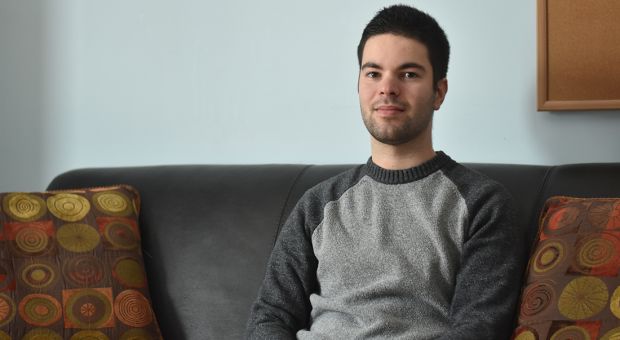
The Nursing Science Society (NSS) and the Queen’s Psychology department are working together to support the mental health of nursing students.
Alex Troiani, NSS president, and Nathaniel Gumapac, incoming NSS president, met with Assistant Professor Katie Goldie and members of the Psychology department to discuss a future mental health workshop for nursing students, focusing on validation and resilience.
“We want to validate the struggles nursing students are facing by connecting them to others in similar positions so they understand that they aren’t the only ones having difficulty and that is ok,” Troiani wrote in a statement to The Journal.
“With regards to resilience, evidence shows that workshops that build resilience improve people’s ability to deal with stress. Stress is inevitable in school, life and nursing, so we want to provide students will strategies to improve their overall resilience.”
Virtual and free of charge, the workshop is scheduled to run in early January. NSS would also like to run the workshops in September to prepare students for stressors faced during the school year.
The workshop will be designed and implemented by students in the Psychology department, however, the NSS hopes that upper-year nursing students can use the workshop in Orientation Week in future years.
READ MORE: School of Nursing identifies mental health “vulnerabilities” in new report
“What’s important about this workshop is that it’s an upstream and preventative approach. When someone seeks a counsellor, there is usually something wrong that needs [to be] addressed,” Troiani wrote.
“However, this workshop will provide skills to combat and prevent stress from getting out of control, which makes this mental health resource unique compared to the ones already available.”
According to Troiani, nursing students experience unique barriers in accessing Queen’s mental health resources. They face the added stressor of clinical placements, stemming from new environments and performance anxiety.
The School of Nursing (SON) leaves the issue of mental health resources up to the University, which can create a misunderstanding about the unique needs nursing students have.
“When students use University mental health resources such as SWS, the counsellors do not understand the clinical setting,” Troiani wrote. “Students end up spending most of their time explaining to the counsellor what clinical entails—this is not an effective use of time.”
READ MORE: Nursing wellness coaching numbers return to pre-pandemic levels
Troiani also said COVID-19 has negatively impacted nursing students’ mental health. When the pandemic hit in March, clinical rotation hours and labs were front loaded, creating more stress for nursing students and often causing a lack of self-care.
In light of these problems, the NSS has been working to create more mental health resources for nursing students. Specifically, the Society is advocating for an embedded mental health counsellor in the SON, who will be knowledgeable of the clinical environment.
Denise Neumann-Fuhr was hired as a SON Wellness Coach in November 2019. Neumann-Fuhr holds 30-minute Zoom coaching sessions with students, in which she helps them form strategies for improving their mental wellbeing.
“This is all great progress,” Troiani wrote. “We will continue to advocate for the mental health of nursing students.”
Want to see more like this? Subscribe to our newsletter, Campus Catch-Up to receive regular updates right in your inbox.
Tags
Mental health, Nursing Science Society, Queen's School of Nursing
All final editorial decisions are made by the Editor(s)-in-Chief and/or the Managing Editor. Authors should not be contacted, targeted, or harassed under any circumstances. If you have any grievances with this article, please direct your comments to journal_editors@ams.queensu.ca.
